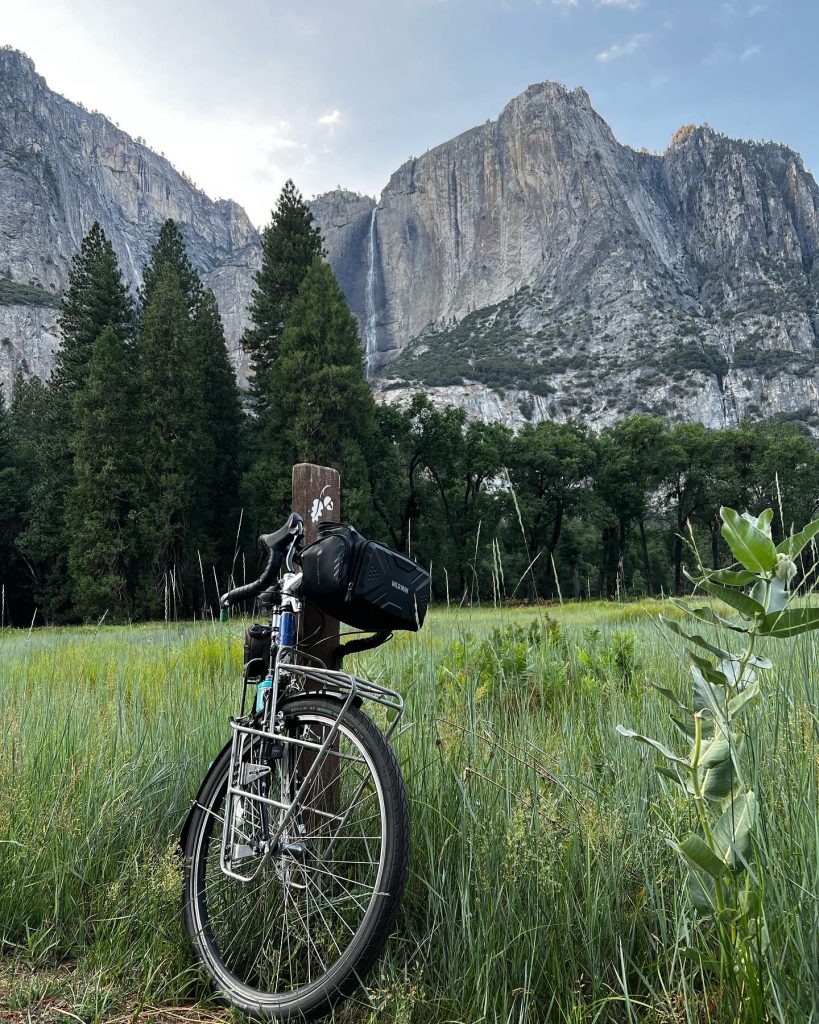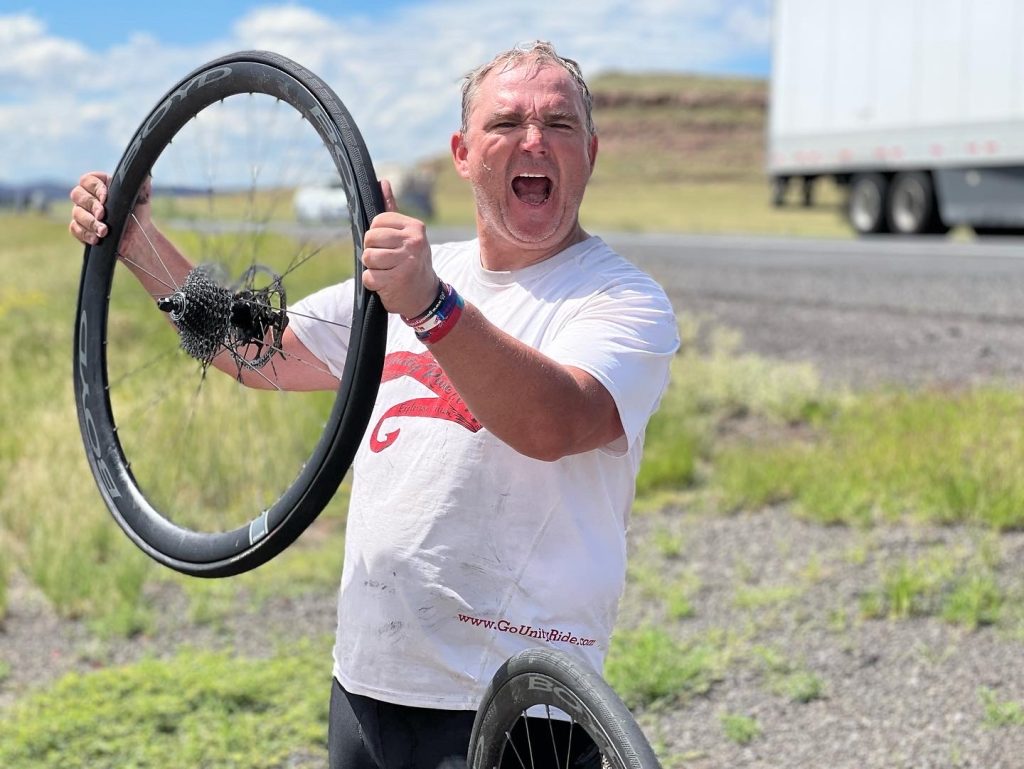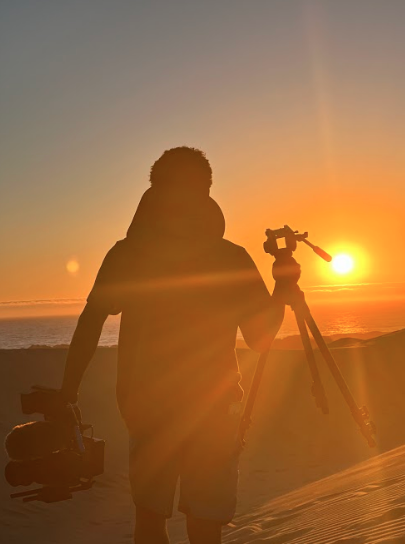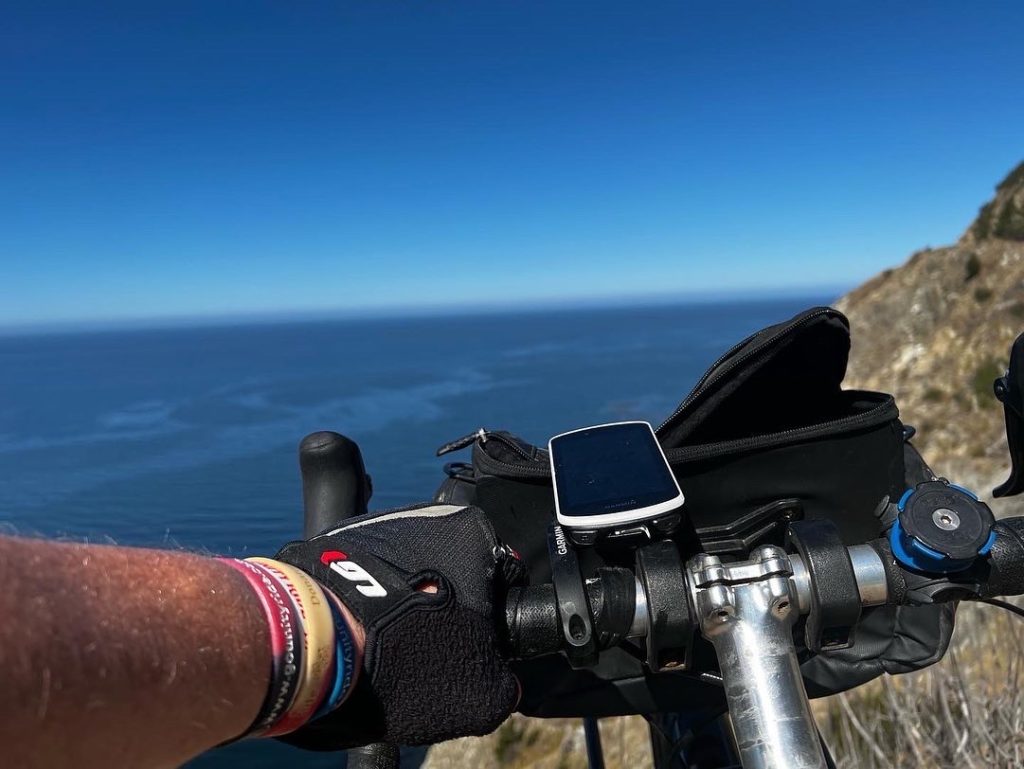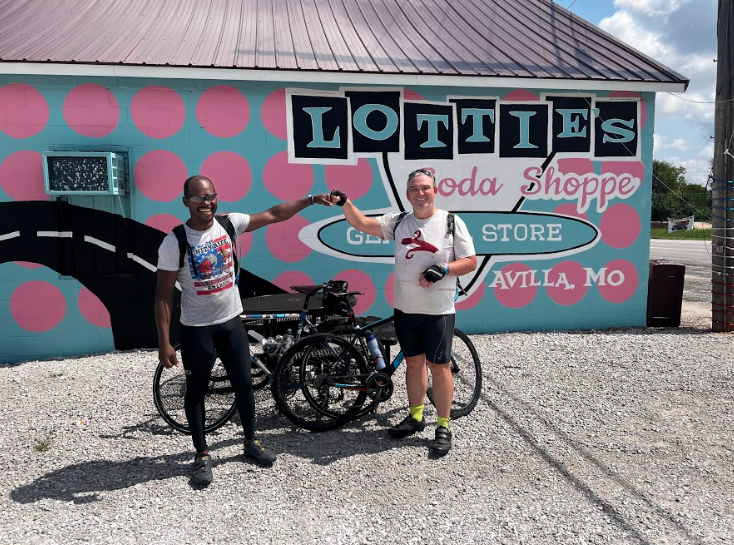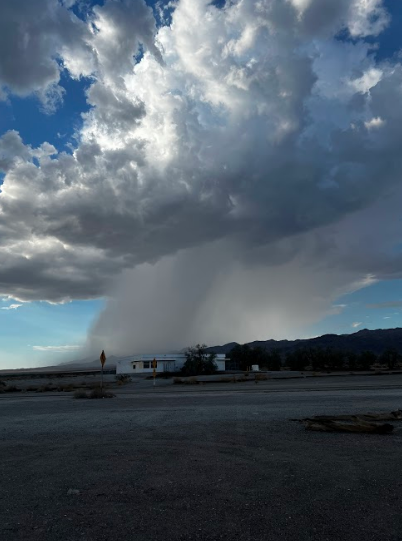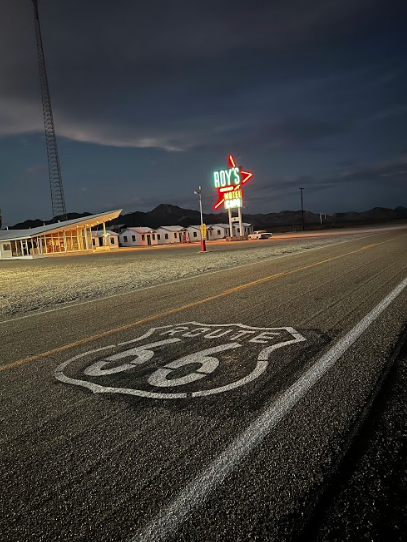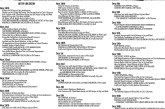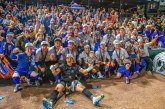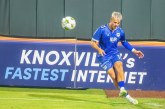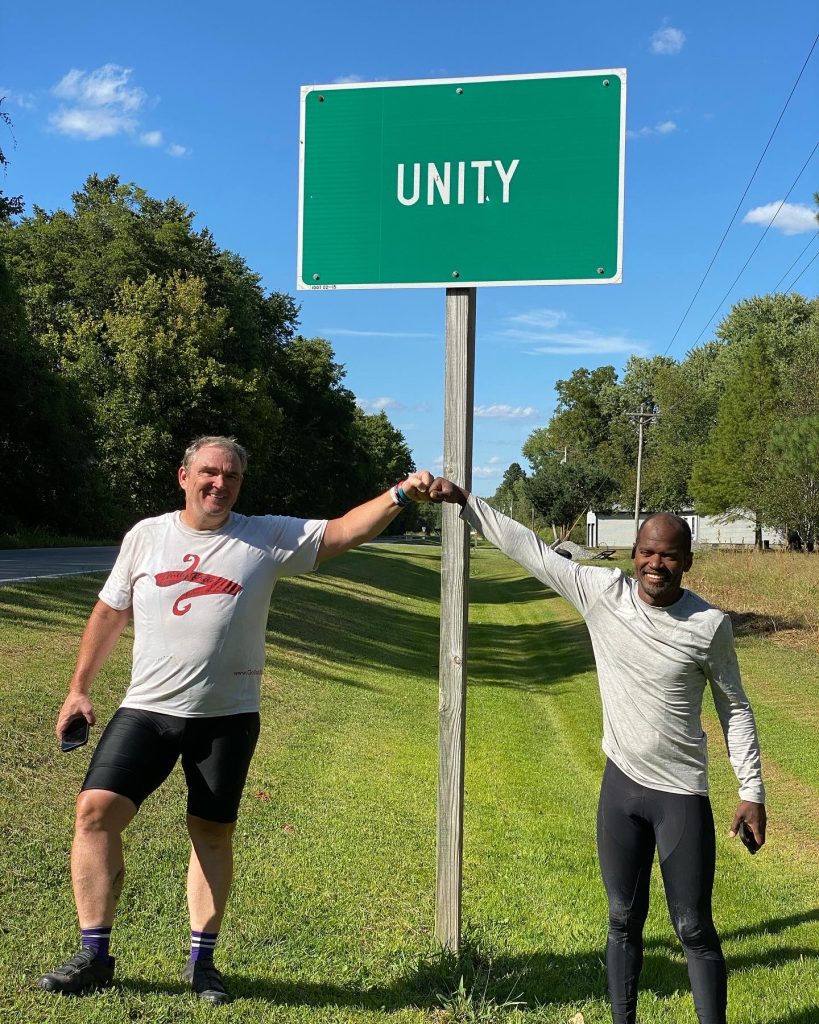
Unity Ride organizers cycle through the heartland to promote a message of empathy, compromise and brotherly love
It sounds like the setup of a stand-up sketch by a late-night comic, back when straightforward jokes could still hustle a laugh: “A Black liberal and a white conservative walk into a bar …”
In the case of the organizers of the Unity Ride – Andre Block (the liberal Black guy) and Jonathan Williams (the white conservative dude) – it’s still funny because it’s true: The two men literally met at Scruffy City Hall on Market Square, back on New Year’s Eve 2015.
“I walked inside of Scruffy City, and Scott [West, the venue’s proprietor and a champion of downtown Knoxville’s revitalization] snatched me up and told me he wanted me to meet someone,” Block recalled recently in an interview with BLANK Newspaper. “We ran up the steps where he introduced me to Jonathan, bought us a couple of drinks and took off.”
Amusing as the story might be, it resonates beyond a chance encounter because the two men didn’t just hit it off; they connected on levels where respect and mutual admiration become deep and abiding bonds of friendship.
And politics didn’t even enter into that inaugural conversation, Block added.
“Typically, Jonathan and I get deep into conversations about politics, but that’s in a particular setting,” he said. “When we get together, we’re shooting the s— like anybody else, and when we met for the first time, we shared a love of bicycling, which is why Scott wanted to introduce us. I was getting ready to do a charity ride, and Scott knew Jonathan had a love for cycling and that we would be a good pair to know each other.”
“The first night we met, we sat in Scruffy City Hall on New Year’s Eve at the top of the stairs for over an hour,” Williams added. “We had a lot to talk about, but politics was never once mentioned. We talked about everything two dudes would sit at a bar and talk about.”
Williams was particularly interested in a cross-country bike ride Block was preparing to undertake that would carry him from Knoxville to Venice Beach, California. The idea was born three years earlier when Block, fresh off some charity work in Lynchburg, Virginia, was gifted an old bicycle by a random stranger. Once he swung a leg over and gripped the handlebars and heard the familiar click of a turning chain propelling him forward, the love of cycling into which every American kid falls returned with a ferocity that gave him inspiration: He would ride, he decided, to St. Louis to see his son, Andre Block Jr. … and he’d use the trip as a way to raise money for a Lynchburg medical clinic at the same time.
Along the way, he met people who supported the cause, including a lady who suggested he ride to raise awareness for lupus. He said he would and held himself to the pledge. That was the trip he and Williams discussed on that New Year’s Eve, and it planted seeds of what would become the Unity Ride.
“Andre did his bike trip in 2015, and I followed it on social media and fell in love with the idea: Here’s this guy, out here doing this thing, and I wanted to go with him,” Williams said. “I did a solo trip in 2016, and he followed my trip. Just the whole way, we encouraged and supported one another and shared each other’s stories.”
Williams grew up in rural Georgia, joining the Navy when he turned 18 and serving for a decade in Japan, the Persian Gulf and stateside as a logistics specialist with the Blue Angels, a daredevil team of Navy jets that tour the country to demonstrate naval firepower and finesse. After he was discharged, he landed in Knoxville and started Accord Federal Services, a veteran-operated business that looks after gravesites for the U.S. Department of Veterans Affairs. Inspired by Block’s trip, which he helped plan and raise money to support, Williams set out on his own in 2016. Along the way, he added, he found so much more than just a new passion.
“After I got back home, I told people this: ‘You don’t want to come back home,’” he said. “When you ride a bicycle for six months solo across the country, your life is going to change. Andre’s changed in 2015, and mine did in 2016.”
But what if, the two men began to realize, they could use such a ride to change the lives of others? More importantly, what if they could use it to change how people felt about one another, particularly those on opposite ends of the political spectrum? Politics always took a backseat to friendship, but the differences were there: Social media posts were a good indicator of which direction each man leaned, and eventually their conversations drifted into political and social issues.
“It was never this sit-down conversation where we said, ‘OK, you’re a liberal, I’m a conservative; how do we argue this through?’” Williams said. “It was more like, ‘I know how you feel about things, and you know how I feel about things. Now let’s go ride bikes and make memories.’”
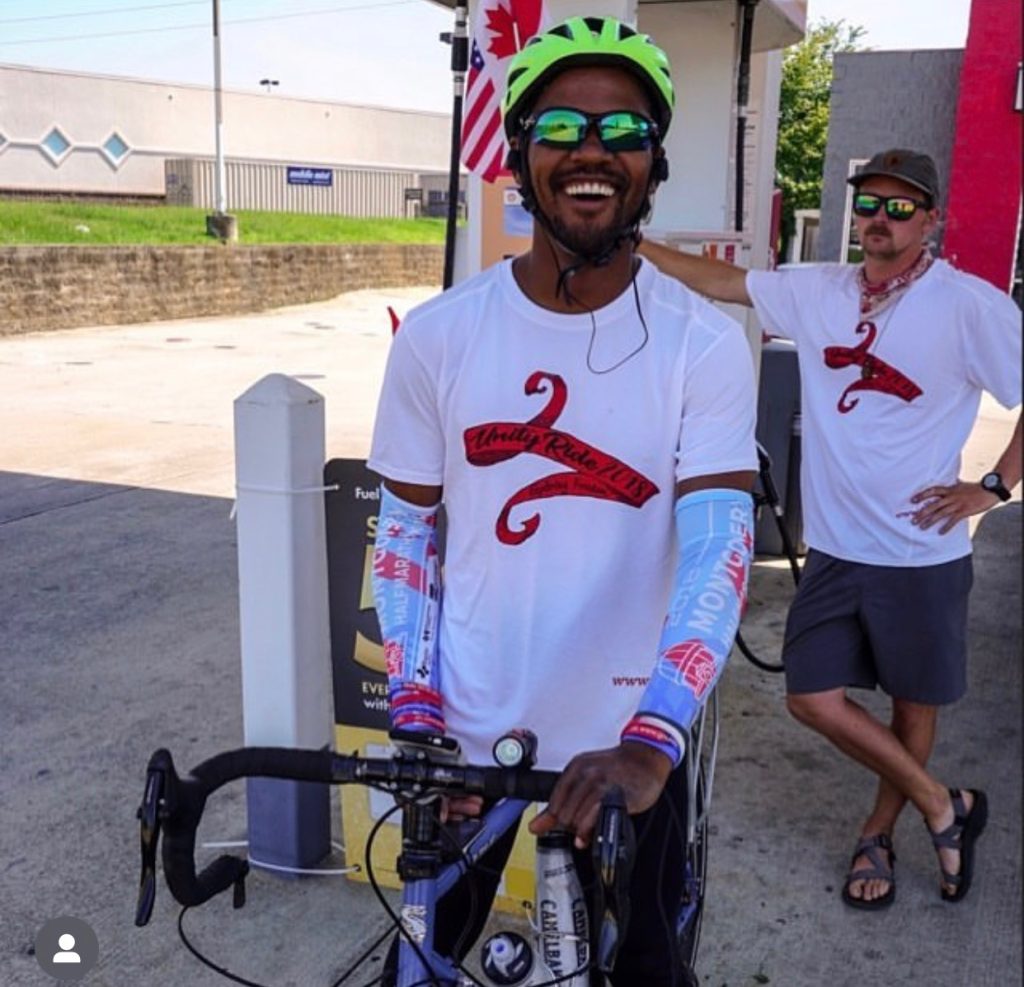
“They were always organic conversations,” Block added. “We tried the whole, ‘Here’s a topic, now go!’ But your deepest feelings are not coming from that. There’s not a lot of understanding one another’s perspectives when you approach it like that. When we had our organic conversations, I believe we covered a lot more, but we always recentered each other.”
Meeting as two people rather than two political wonks had something to do with it. By the time politics reared its head, friendship was more important. It made whatever differences they felt politically seem trivial because each man knew the content of the other’s heart. Most Americans, the two felt, were of similar stock, meaning that an opportunity to look someone in the eye and have a conversation over coffee and regional cuisine would uncover far more similarities than differences.
Michael Samstag, a local filmmaker who helped curate the Knoxville Film Festival for a number of years, upped the ante by suggesting the two men document their journey via film. But rather than use politics as a lightning rod, the pair decided to use their differing opinions as proof that such beliefs don’t define individuals – in other words, that tribal affiliations based on culture-war klaxons or economic clarion calls don’t have to be mean-spirited, personally insulting demagoguery.
It was a bold risk, given the American political climate at the time. The 2016 election had left the country more polarized than ever before, and both parties were filled with us-versus-them drumbeats that made rational, respectful discourse a rarity rather than the norm. Undeterred, they hit the road anyway, leaving Oceanside, California, on Memorial Day 2017 and spending the next 35 days en route to Washington, D.C.
“We knew we wanted to go coast to coast, and we thought ending in D.C. on the Fourth of July was a good way to do it, but that was all we really planned out ahead of time,” Williams said. “We bought some crazy film equipment that we didn’t really know how to use – a camcorder, a Sony DSLR and a Maverick drone – and over the course of that trip, we put together a 28-minute video I’ll go to my grave saying is the best thing we’ve ever done.”
Fortunately for Block and Williams, they had an additional companion to serve as the lead camera operator: Williams’ cousin, Justin Hazelett, who got turned onto the idea during Williams’ 2016 solo ride.
“I saw him on social media, and he was in this real tiny town where I used to live back in 2010, and I just reached out and asked, ‘What are you doing there?’” Hazelett said. “He told me he was riding his bike cross-country, and I thought, ‘Alright – I like that idea!’ After he finished it, I was not in a great spot and wanted to get out of that spot, so I flew out to Portland, bought a bicycle and started riding.”
And ride they did, through the heartland of a country that all three men found was much more unified than cacophonous digital discourse might indicate. The conversations they had, at truck stops and campgrounds and on the side of the road, were more than just pleasant; they were meaningful in a way that buoyed both their spirits and the actual journey itself, which became known as the Unity Ride. It was so successful that in 2018 they did it again, that time riding from New Orleans to Toronto, Canada, for 32 days, tracing the route of the Underground Railroad. More conversations ensued, and more hope was dispensed via those encounters.
“I remember Andrew talking to someone in a campground in Mississippi: a young Black guy and an older white guy having a conversation, because that’s what it was all about,” Williams said. “I remember a conversation I had with an older Black guy named Stan, whom we met on the street and just sat down and started talking. We had so many of those, and the reception was always incredible. The majority of the time, people appreciated what we were doing and would tell us, ‘We really need this. We need more of this.’”
It wasn’t uncommon for folks they met to donate to the Unity Ride campaign. One particular donor at a grocery store along the way handed over the only $2 he had, sheepish that he couldn’t give more, but it’s one of the most treasured donations the team has received to date.
“That’s our lucky $2 now,” Williams said. “I don’t think we’ll ever spend it.”
“It’s moments like that, when you get to see people’s whole bodies light up and they say, ‘Oh my God, I love what you’re doing!’ – it’s those moments that you know you’re making a difference,” Block added.
To this day, the Unity Ride – the fourth ride kicked off July 31 from Knoxville to California – remains a building block between disparate opinions. Face-to-face conversations, the men believe, foster understanding, empathy and change – even between one another.
“When I started this trip, I was against all government, and I didn’t want to hear anything about it,” Hazelett said. “I would watch Andre and Jonathan debate, and they would talk for hours and hours about this and that, and it might get heated, but they never argued. And about a third of the way into that first ride, it sank in for me: There’s a lot more to this. It’s all about finding common ground because it doesn’t matter what side you’re on. If you can get to that common ground, there’s a lot of love that comes out of it on either side.”
“Jonathan has changed my perspective in several different ways, one of them being the way I view our very first president,” Block added. “Now, I see him as someone whose last request was to free all his slaves. All along, my perspective has been shaped by the love and the information trading that we have been doing.”
The political climate, he pointed out, seems to have gotten more visceral, as the loudest voices retreat to their respective ideological corners and strategize about ways to crush the opposition. Compromise is often viewed as a dirty word, and invectives and epithets by national leaders further poison the well.
That doesn’t discourage the Unity Ride team, though. If anything, it makes what they do all the more necessary because everyday Americans need to see, Block said, that those who believe differently are not the enemy.
“We, as a people, categorize each other and throw people into this box or that box and assume that everybody in those boxes acts a certain way or believes a certain thing, and that isn’t quite true,” he said. “There are several reasons why we are separating from each other, but the biggest is that I think it’s so much easier to find hatred for someone if we don’t know who they are. We’ve thrown them into this box of wolves, and who wants a wolf in their life?”
That mistrust, Williams added, can even come from supposed ideological allies. He’s a conservative, but he doesn’t support Donald Trump, and that personal decision means he’s viewed with suspicion by Trump-supporting Republicans and from liberals who see politics as a binary spectacle instead of the shades of gray both men exemplify.
“I think we can all be a lot of different things,” he said. “I don’t have to believe in certain things. I can be both pro-life and pro-gun.”
“Something I ponder on a lot: How do we gather the things that most Americans agree need to change and get people focused on those?” Block added. “For example, most Americans believe we need to have term limits for senators and governors. How do we get everybody to start vibing on that?”
Initiating conversations and fostering them through the lens of Unity Ride is as good of a place to start as any. It’s a grassroots campaign in every sense of the word – but not one meant to win hearts and minds; instead, it’s designed to open both to the possibility of change, of compromise and of recognition that “one nation under God” has room for all.
“One of the things we do not ever try to do is change minds,” Williams said. “I will tell you my thoughts and opinions, and I can share my experience and how the way I thought about certain things needed to change, but then you have to form your own. And I think that’s where people get mixed up. People go into these conversations a lot of times trying to browbeat each other and to be right.
“That’s the thing: I’m not right – it’s just how I feel. And you can feel how you want to feel. And when you come out of a conversation like that with someone who was a stranger in a town you’re riding through for the first time, it’s powerful. It’s life-changing, dude, and every trip we take, we change again and again.”
For more information, visit www.gounityride.com.



